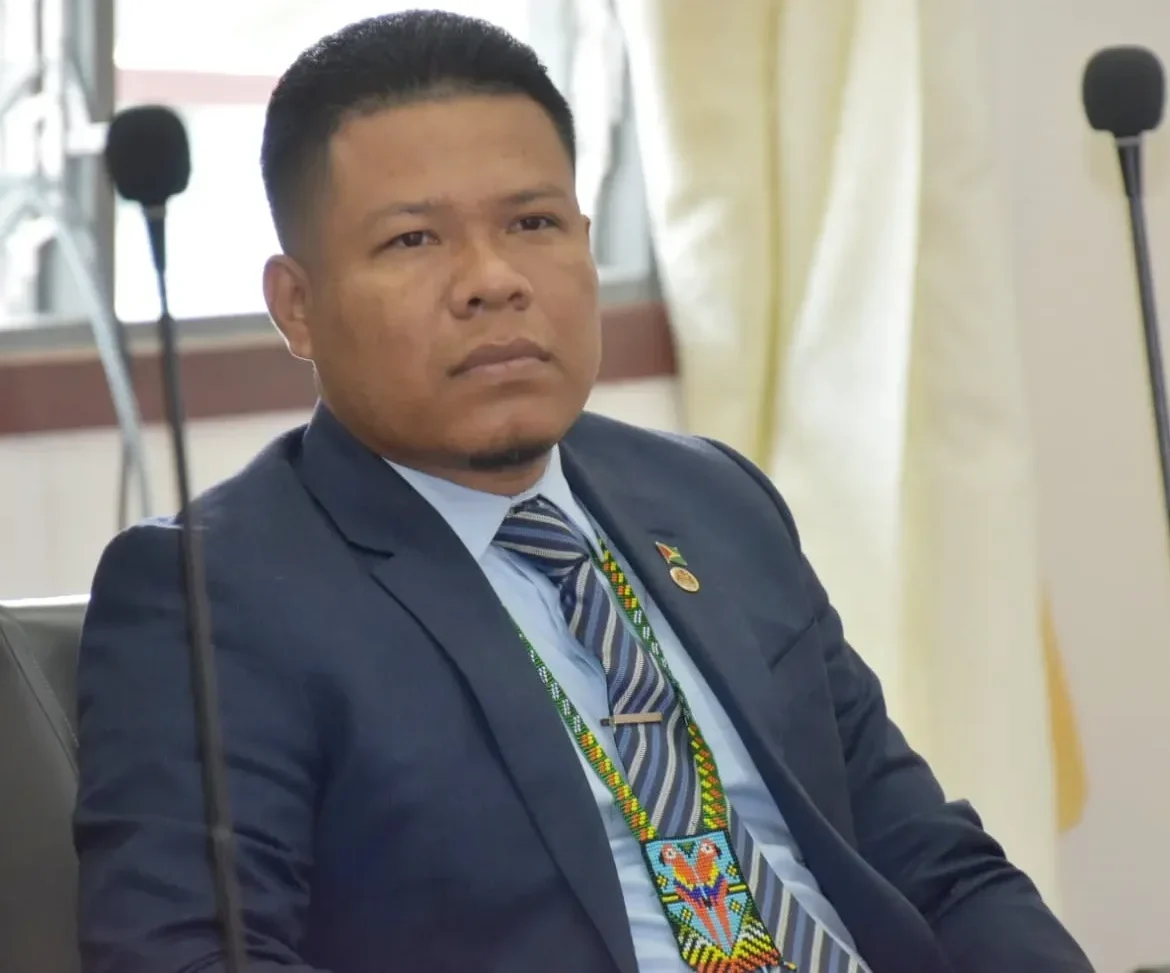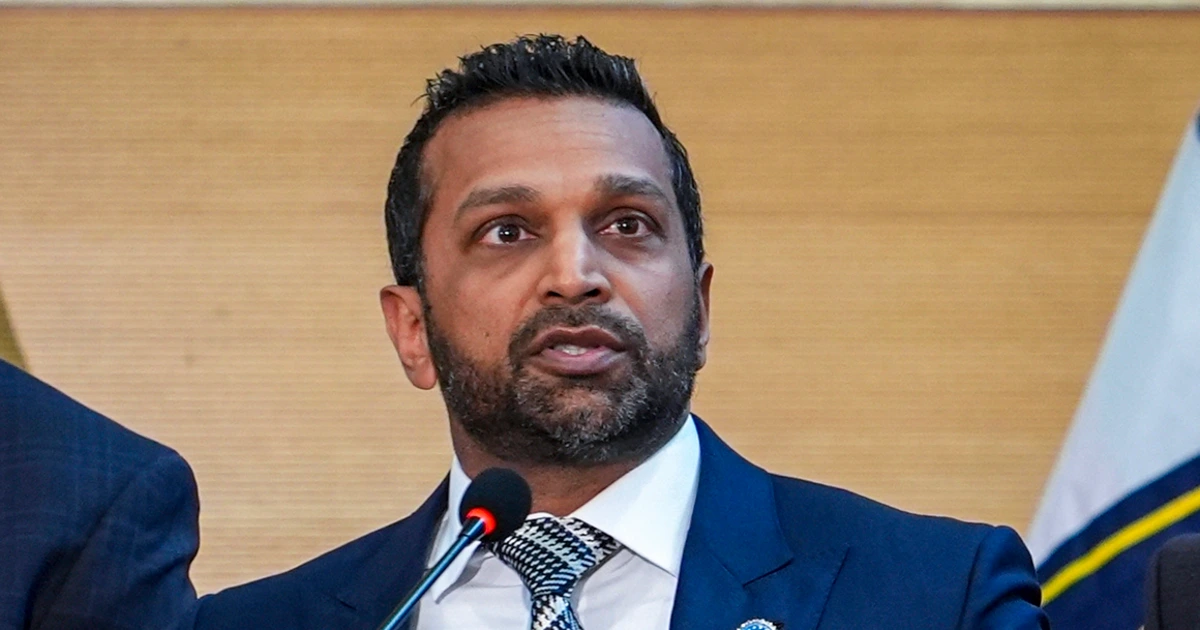APNU district leaders blame poor campaigning, low voter turnout, and WIN surge for election losses
By KNEWS
Copyright kaieteurnewsonline

APNU district leaders blame poor campaigning, low voter turnout, and WIN surge for election losses
Sep 12, 2025
News
Kaieteur News – District leaders from several regions where A Partnership for National Unity (APNU) recorded massive losses in the September 1 general and regional elections have attributed the party’s poor performance to inadequate campaigning in certain areas, low voter turnout and the rise of new political parties such as the We Invest in Nationhood (WIN), led by businessman Azruddin Mohamed.
The party, once the main opposition in Guyana, lost its status to WIN. WIN secured 16 seats in the National Assembly, while the ruling People’s Progressive Party/Civic (PPP/C), led by President Irfaan Ali, won 36 seats, securing Ali a second term.
In Regions One, Five, and 8, areas where APNU had previously secured significant support, the party recorded alarmingly low votes. In Region 1, for instance, APNU managed just 496 votes, compared to WIN’s 5,617 and PPP/C’s 9,030. Ronald Cox, APNU representative for Region 1, admitted that the party failed to effectively campaign in many communities. He stated, “The majority of APNU supporters have crossed over to WIN political party.”
Cox revealed that APNU has yet to hold detailed post-election meetings but noted plans to restructure at multiple levels. He called for the re-establishment of active party groups in every major community, as had existed in the past. “We have to start back with our party groups in the various communities. Back in the days, we had every community, at least every major community, we had one active party group. And that is something that worked in the past, and I believe that once that is activated, that can work again,” Cox stated. He acknowledged that APNU’s current internal structure, community, district, and regional groups, have been weakened over the years due to a lack of regional conferences and leadership presence.
Lack of representation
Cox further emphasised that APNU failed to engage voters effectively, both by not holding the government accountable and by not maintaining a visible grassroots presence. “It is my opinion, not my party’s opinion, it is my opinion that we have not fully engaged in one, holding government accountable as we progress, and two, being on the ground. As a representative would always say, we need to be grassroots leaders, grassroots politicians. We talked that, but we did not really practice that. Maybe in some communities, but not so greatly. That’s another strategy that can work once we start engaging in similar activities again. Being on the ground every day, every week, every month, and getting the work done in terms of passing information to people, make your representation on people’s behalf, villages’ behalf, in terms of village councils and different things. My belief is that you don’t have to make government to make representation for people. Once people recognise that through your representation, they have been given certain things, or they are being borne because of your representation, then of course they will recognise that you have been working with them. To some extent that was not happening as well,” he explained.
The geographic challenges of Region 1 were also a major factor. Cox explained that travel within the region is expensive and time-consuming, limiting campaign reaches. “Traveling from Mabaruma to Moruca if you want to go there, you have to go there to spend a weekend. You can’t go like one day and come back. And that expensive road would be like $200,000. If you go to fundraiser, you don’t get financial contribution from sponsors, political financiers and so on. Your tasks are very challenging,” he said.
He also accused WIN of benefiting from APNU’s internal structure, saying that several APNU representatives who were on the local government candidate list had switched allegiance to WIN. These included sitting town councillors and former town clerks who campaigned for WIN while still holding APNU positions. “WIN used people from APNU who were already seasoned in the system, which made their job easier,” Cox said.
Voter frustration
Another key issue, according to Cox, was voter frustration. He explained that many citizens, especially in traditionally supportive areas like Region 10, were calling for change. “All you hear them saying is: it’s time for change, we need new leaders, new structure,” he said, admitting that despite introducing younger and Indigenous leaders at the national level, APNU couldn’t compete with the appeal of a fresh political perspective that WIN presented.
Cox expressed mixed satisfaction with APNU’s campaigning in Region 1. While campaigning in Mabaruma was active and visible, areas such as Moruca and Port Kaituma were neglected due to limited resources and inactive local groups. “It was a great challenge getting our campaign effectively going across Region 1,” he said.
As for the future, Cox believes the party must regroup and reorganise. He suggested that a coalition similar to the one formed with AFC in the past may be the only way forward to mount a serious challenge against one-party dominance. However, he noted that any decision would ultimately lie with the party’s central leadership.
In Region 5, where APNU had called for a recount, district leader Vinceroy Jordan echoed similar concerns. APNU however was still able to hold on to one of the the two regional seats it has held over the years. Jordan attributed the party’s poor performance to low voter turnout and the rise of the WIN party. “With the advent of the new political party, some people chose to vote for WIN, though our main base, especially among senior folks, remained intact,” he said. Jordan added that the full details are still being analysed before a comprehensive pronouncement is made.
He also raised concerns about the “bloated” voter list, which he said included thousands of dead or people who migrated. This, he argued, tilted turnout statistics.“
The low voter turnout was across the country and it was not necessarily in APNU’s stronghold alone. “What we also take into consideration is whether or not it was actually a low voter turnout with reference to the padded list that we have, the bloated list which contains thousands of dead persons and thousands of persons that do not live in Guyana.
Despite the results, Jordan said he was satisfied with the campaign efforts in Region 5. “We literally walked all the villages. We had public meetings, distributed our manifesto, drove social media campaigns, and knocked on doors. Myself and the entire regional team did remarkable work,” he noted. Jordan confirmed that APNU retained one of the two geographic constituency seats in Region 5 and will continue to have parliamentary representation. “We will regroup and mobilise our people on the ground,” he affirmed.
In Region 8, APNU district leader Richard Sinclair shared similar sentiments. Although he said it was difficult to pinpoint the exact reason for the party’s underperformance, he alleged that the PPP/C had offered monetary inducements to residents just before the elections.” “I cannot say what was the reason the turnout of votes for APNU were so low but I understand that just before elections, PPP offered persons money…” When asked whether he was satisfied with the party’s campaign efforts, Sinclair responded, “I can’t say if I’m satisfied or not, but I can say we did the work. I think we had done more than enough.”
APNU, district leaders, election losses, low voter turnout, poor campaigning, Ronald Cox, Vinceroy Jordan, WIN surge



